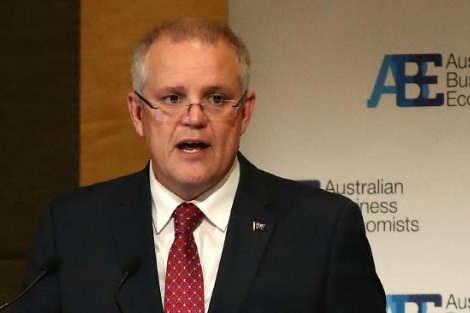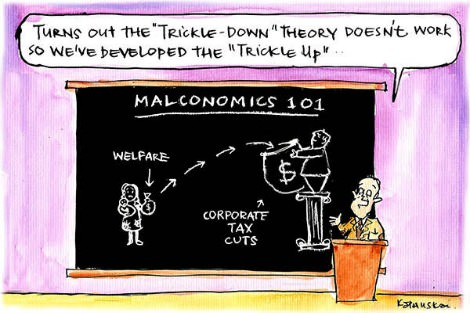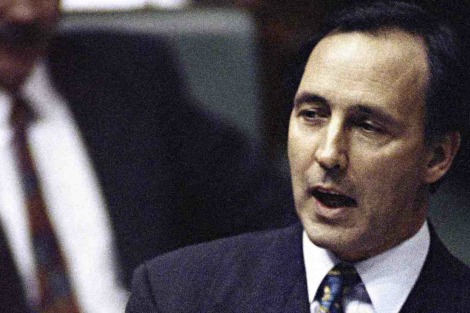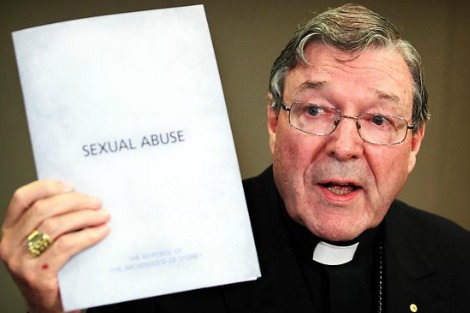Author: Frank Brennan
There are more than 200 results, only the first 200 are displayed here.
-

RELIGION
- Frank Brennan
- 17 May 2017
As the Church of 2030, we need to be more attentive to the contemplation of believers and our experience of spiritual realities, as well as the preaching of the church. Pope Francis has no time whatever for the notion of the Church as a perfect society. But, there is no way that Francis wants to abandon the ideals and the commitment to truth and justice so well exemplified by his predecessors John Paul II and Benedict.
READ MORE
-

RELIGION
- Frank Brennan
- 15 May 2017
The reconciliation of this vertical relationship is possible only through the mediation of Jesus who embodies, lives and dies the reality of this reconciliation. He puts us right with our God and thereby establishes the basis for right relationship with each other. In many countries such as Australia, Timor Leste and South Africa, the public rhetoric and programs for reconciliation have, at least in part, been informed and underpinned by this theological perspective.
READ MORE
-

RELIGION
- Frank Brennan
- 08 May 2017
1 Comment
Our Church is presently a strained, outdated social institution with an exclusively male hierarchy and clergy. But it is also the privileged locus for us to be called to the banquet of the Lord sharing theology and sacrament which have sustained the hearts and minds of similar pilgrims for two millennia. Thank God for Pope Francis who is showing us the way, helping us to find meaning in our changing and chaotic world, putting a fresh spring in the step of all those Catholics holding in tension the prophetic and the practical, the theological and the humanist, the tradition and the contemporary reality.
READ MORE
-

AUSTRALIA
- Frank Brennan
- 07 May 2017
7 Comments
Part of the cost of the double dissolution election last July has been the creation of a Senate with the largest, most diverse group of crossbenchers ever. This will make the passage of any new contested Budget measures difficult, particularly given the Prime Minister’s vulnerability on his right flank, and the Labor Party's propensity to mimic the Opposition tactics adopted previously by Tony Abbott. The government needs to create a clear narrative as to how it will achieve equitable and sustainable growth through this Budget.
READ MORE 
-

RELIGION
- Frank Brennan
- 17 April 2017
Following the passing of the Australian comedian and social commentator, John Clarke, his co-presenter Bryan Dawe talked about being on a tram in Melbourne with people nodding compassionately and knowingly at him. Bryan recalled that an old man had once commented to John, 'You know what you two do? It's a secret between you and the audience.' These are not the sorts of things we expect to hear when someone is still alive. Once they are dead, those who love and admire them recall all sorts of details about their life, finding new meaning and new depth even in the everyday things.
READ MORE
-

AUSTRALIA
- Frank Brennan
- 10 April 2017
16 Comments
In an age of 'budget repair', social policy risks becoming just a sidebar to economic policy which is a contest of ideas about how best to grow the size of the pie thereby providing a slice for 'the deserving poor' without having to redistribute too much of the pie, while 'the undeserving poor' drop off the edge as they would have anyway. For those of us schooled in Catholic social teaching, the so-called 'undeserving poor' are the litmus test of our commitment to the human dignity of all persons.
READ MORE 
-

RELIGION
- Frank Brennan
- 29 March 2017
1 Comment
'We need to be more focused on grace, Christ and God's word, rather than just on law, the Church and papal utterances. But today, I will draw more on law, the Church and the Pope to point us towards those more fruitful domains: grace, Christ and God's word. Our future visioning needs to focus more on the gospel imperatives including the option for the poor and the dignity of all persons, including those who are non-believers.' Address to Catholic Health Australia's Catholic Governance Symposium, 27 March 2017
READ MORE
-

RELIGION
- Frank Brennan
- 14 March 2017
24 Comments
The debate over section 18C of the Racial Discrimination Act (18C) has gone on for far too long. It's time to bring it to a close. To date, I have been silent in the present debate, in part because I was a critic of such legal provisions when they were first proposed in 1992 and again in 1994. I have since been convinced that a provision like 18C could be designed to target racial vilification, leaving offensive insults beyond the reach of the law in a robust democracy committed to freedom of speech.
READ MORE 
-

RELIGION
- Frank Brennan
- 01 March 2017
11 Comments
Make no mistake, our church leaders are not yet out of the blaze of the headlights. They don't have all the answers, not even in relation to matters peculiarly within their jurisdiction. Despite being put on notice, our most senior bishops could not even agree on the limits of the seal of the confessional and on what a priest should do if abuse were reported in the confessional by a child. It's not just our past leaders who needed help. Our present leaders also do.
READ MORE
-

RELIGION
- Frank Brennan
- 17 February 2017
3 Comments
The commission's forensic scrutiny of past actions of church officials in no way constitutes an interference with the freedom of religion. Its spotlight is to be welcomed, provided only that it is shone on a truly representative sample of all institutions which have been found wanting and provided the same light filter is applied to all institutions. I do however have a problem with the commission making findings on issues like the want of compassion when those findings are made only against a Church.
READ MORE
-

RELIGION
- Frank Brennan
- 13 February 2017
74 Comments
Last Monday, the Royal Commission commenced its three-week forensic examination of the causes of child sexual abuse and cover up in the Catholic Church in Australia over the last 60 years. The statistics were horrifying. Every case represented a person who claims as a child to have been abused by a person of authority in a Catholic institution. Whichever way the statistics are interpreted in comparison with other institutions, they are appalling. We need to hold the victims clearly in focus.
READ MORE 
-

RELIGION
- Frank Brennan
- 06 February 2017
17 Comments
Listening to the media and our church leaders in recent days, we know that there is plenty of darkness ahead for our Church in the weeks ahead with the Royal Commission's so-called 'Catholic wrap-up'. We're told that the statistics will be terrible and we expect that some of our church leaders will appear, looking stunned and helpless. This morning, I think we need to reflect on these stark realities in the light of the scriptures. And this can be done only by holding the victims clearly in focus.
READ MORE